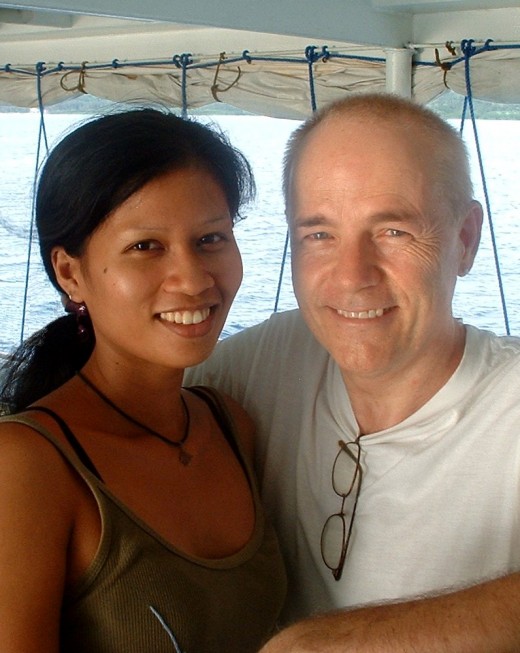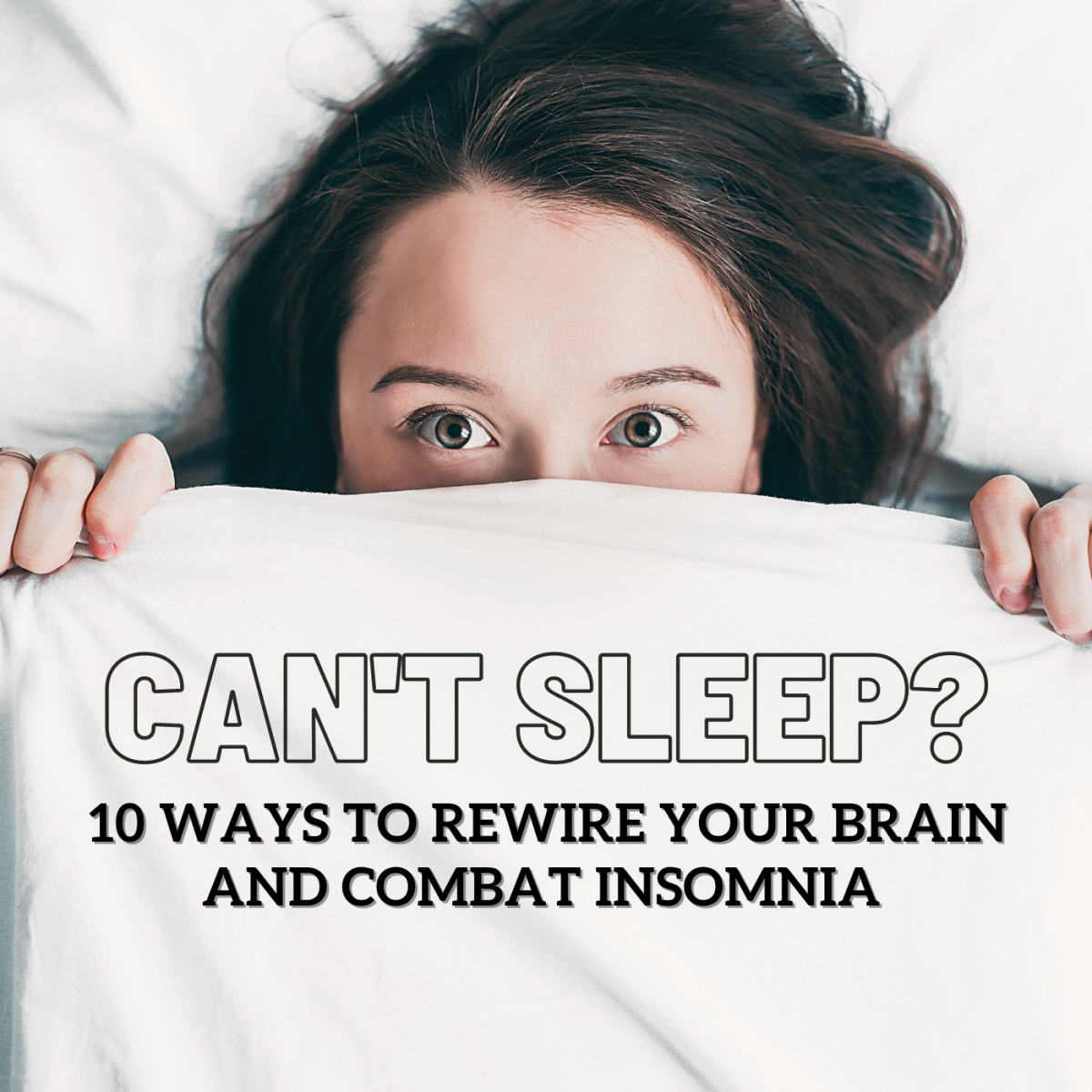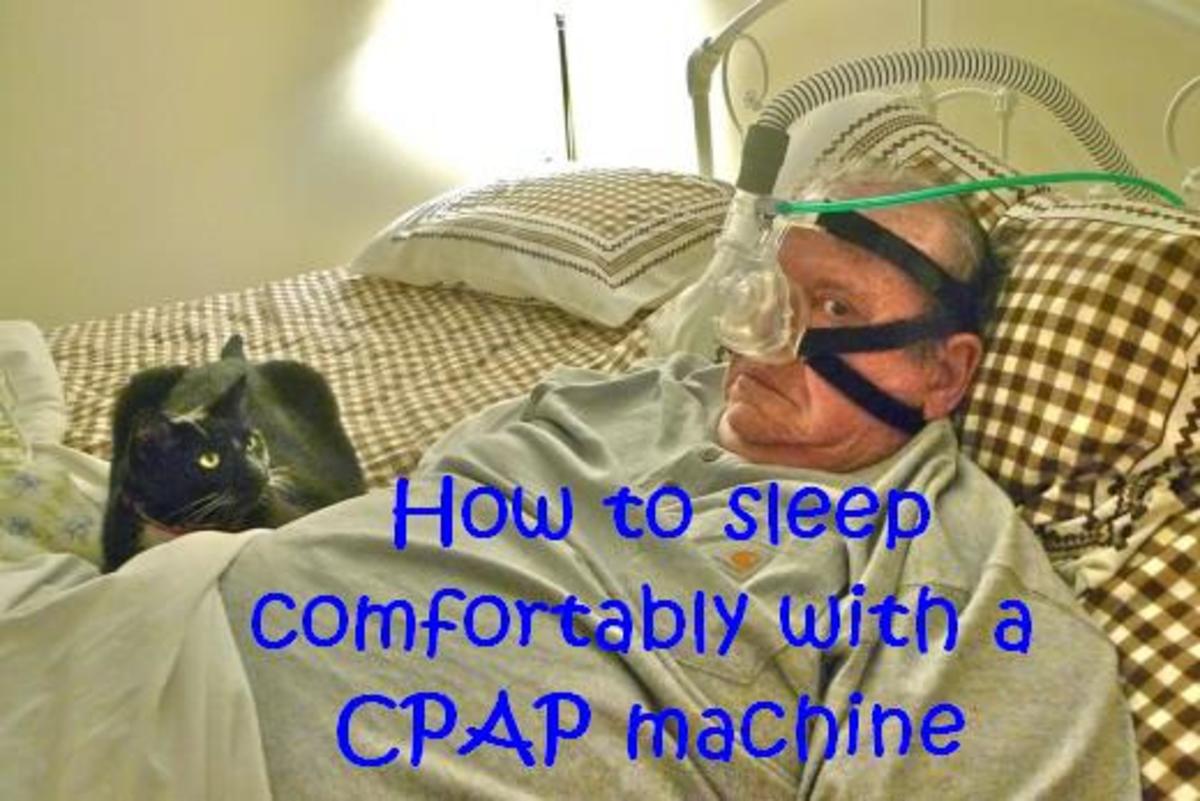How to Sleep Better and Beat Insomnia: 5 Simple Tips

Trouble sleeping? I know just how you feel.
I am an insanely light sleeper. The slightest sounds can wake me up instantly. I have enjoyed sleeping deeply at times, but that's the exception in my case.
These sleep tips can help. They're all natural and have worked for me over a period of decades. When you're looking for that good night rest, one or all of these methods could be just what you're looking for.
Only once have I ever slept through my alarm clock, but that was after working with 4 hours of sleep a night, for over a week. I woke up that one time with my arm draped over the alarm clock and I had no memory of ever having turned it off. I don't recommend working insane hours just to ensure that you'll go to sleep. There are far better ways.
How do I get to sleep when I really, really need to get some shut-eye and merely laying down isn't working on its own?

5 Simple Tips for Sleeping Better
1) Noise muffler! I tried ear plugs, earmuffs and even a pillow over my head. Nothing like that worked entirely. They helped, but I needed something more.
I see that these days there are sound canceling headphones available. I wish I'd had those 40 years ago, but having bulky or even slender headphones strapped to my head doesn't exactly sound comfortable, at least in bed. On an airplane, something like the sound canceling headphones may prove vital on international flights.
2) Something like white noise can do the trick. You know that noise on a television set when you've switched to a channel with no signal or when a station has gone off the air? My preference is a slightly noisy fan or air conditioner. I'm not talking squeaky-type noisy; I'm talking a monotone, droning sound. One fan I bought created a hurricane and a righteously homogenous sound. This might not be for you. A smaller fan should do the trick, but not the ultra-quiet kind.
3) Soothing music or nature sounds. There are CDs and tapes with this kind of content—ocean waves, wind in the trees, a babbling brook and similar. I leave this kind of thing on repeat play.

4) Breathing exercises. I have found that typical sleep breathing is shallow and slow. Mimic this and your body will catch on -- "Hey, it must be time to sleep!" Take a few deep breaths first so you have plenty of oxygen, then do the following:
- Breath in about halfway (not deeply).
- Immediately let it out, and let it out comfortably (no need to force it all out).
- Hold 3-4 seconds.
- Repeat the above until you fall asleep.
5) Put your mind to work on something fun. Worries can keep you awake forever. So, take your mind off of worrying and place it on planning that dream vacation. Can't afford it? Don't worry about that, either. Hey, it's your dream; money doesn't matter there. If you still feel it does, then dream up the money. Get creative.
By one of my professions, I'm a software engineer. I have many of my own fun programming projects, so in order to go to sleep, I plan my programming strategies. After about 10-20 steps, I lose track and find myself waking up the next morning. I'm sure there are plenty of projects or fantasies which could occupy your mind. Get lost in the details and the dreams will carry you the rest of the way.

If you're wondering how to sleep all night, these might help there, too. But if you experience discomfort after sleeping only a few short hours, you may have something more serious going on.
I have to confess that I've lost my faith in doctors for long-term health maintenance. After all, they're trained indirectly by the pharmaceutical industry. Strong conflict of interest there. In a pinch, they're great for emergencies, but not for health maintenance. I recommend you read more about natural cures, improving your body pH (alkalinity), exercising, drinking lots of water, and drinking lots of water (oh yes, don't forget to drink lots of water).
Hopefully, you'll never again have to ask, "How can I get a good night's sleep?" A good night's rest is essential for good health. Sleep well. Stay healthy!









